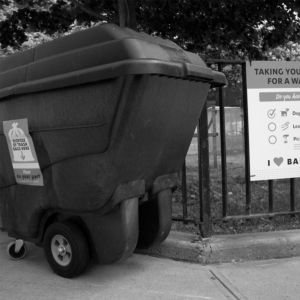Improving Health and Well-Being for WIC Families
More than half of babies born in the U.S are eligible for the Supplemental Nutrition Program for Women, Infants, and Children (WIC), which provides families with healthful food, breastfeeding support, nutrition education, and health referrals. Evidence shows that WIC works—with participation linked to decreased infant mortality, and improved cognitive functioning in young children.
Despite the many benefits of program engagement, some families who receive support from WIC miss out on their WIC appointments at the agency, where they are able to claim their food benefits. Some families also stop participating before their children turn five and their eligibility ends. Researchers and practitioners have identified the “recertification” appointment around a child’s first birthday, which requires families to bring in paperwork to prove their eligibility, as a common drop off point in program participation nationwide. Indeed only 58% of America’s WIC-eligible one-year-olds participate in WIC compared to 79% of eligible infants. This drop in participation continues as children age, with only 25% of WIC-eligible four-year-olds participating in the program.
We began working with state and local WIC agencies in 2016. Our initial research identified that when participants don’t attend WIC appointments to claim their benefits, or stop participating in the program altogether, it’s not always because they don’t want or need the services. Instead, some participants are derailed by structural barriers like a lack of transportation. Others face behavioral barriers: they don’t find the long-term value of the program salient, are confused about the purpose of appointments, or simply forget to prepare paperwork for their appointments before it’s too late.
Over five years, we worked with state and local WIC programs to use behavioral design to create solutions that help families overcome these behavioral barriers, including:
- Using framing tactics and reducing rescheduling hassles to make text message appointment reminders more actionable.
- Enhancing customer service by designing tools to help participants navigate and set goals during WIC appointments.
- Simplifying the WIC shopping experience with app-based design recommendations.
Nutrition support programs like WIC are more important than ever during times of economic downturn. As our research shows, behavioral science can be a powerful tool for improving WIC programming. State and local WIC programs across the country can use insights from our work to engage participants more effectively and to encourage participants to make the most of WIC services.
Interested in learning more about this work applying behavioral science to improving participation in WIC? Reach out to us info@ideas42.org or tweet at @ideas42 to join the conversation.









